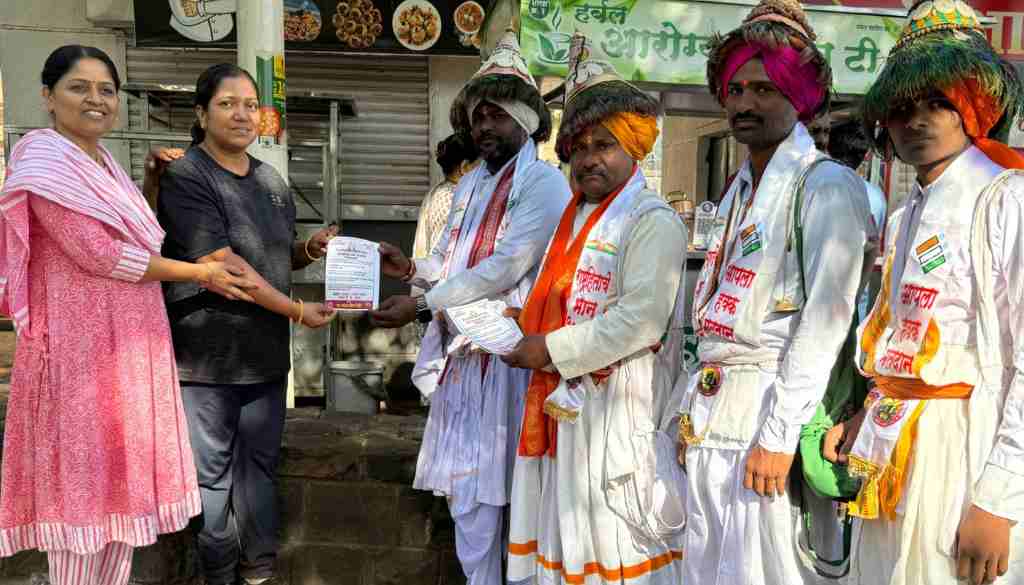Pune: Vasudev’s Melodies Echo Across Pimpri-Chinchwad: Voting Awareness Campaign Gathers Momentum

Varad Bhatkhande
Pimpri Chinchwad, 4th May 2024: Vasudeva’s resonant voice is reverberating throughout Pimpri-Chinchwad, part of the Maval Lok Sabha Constituency, urging citizens to unite under a common vision: “Let’s conquer the field together, for the greater good… Vote in the national interest… Uphold democracy… Let every vote count.”
This rallying cry echoes across the landscape as Lok Sabha elections approach. Spearheaded by Bhausaheb Bhoir, President of the Pimpri-Chinchwad branch of the Akhil Bharatiya Marathi Natya Parishad, this initiative aims to promote voting awareness in various corners of the city.
Despite two phases of Lok Sabha elections having already taken place in Maharashtra, voter turnout has dwindled. The Akhil Bharatiya Natya Parishad has taken up the mantle to encourage voting participation in the Maval Lok Sabha Constituency. The driving force behind this movement is a figure known simply as ‘Vasudev,’ who, unlike the name suggests, is not a dramatist but a genuine individual. Through the medium of folk songs, Vasudev endeavors to instill a sense of civic duty and awareness among the populace.
Addressing the city’s new generation of voters, Vasudev stresses the importance of their participation: “What difference does it make if we don’t vote?” Those apathetic towards voting are implored by Vasudev to fulfill their civic responsibility by casting their ballots at the polling stations. This public awareness campaign extends across parks, residential societies, and various locales of the city, spanning from 6 am to 10 am daily.
Bhausaheb Bhoir elucidates that the logistical aspects of guiding Vasudev and planning his routes for this voting awareness initiative are overseen by individuals such as Rajendra Bang, Asaram Kasbe, and Santosh Ras, acting on behalf of the Natya Parishad.
“Vasudev”: The Singing Saints of Maharashtra
“Vasudev” is a community of Krishna worshippers, primarily found in Maharashtra, known for wandering villages singing bhakti songs and helping families with uddhar. They survive on alms, some also engage in farming or animal rearing. Their origins date back to the ninth century, with Tukaram praising them in his compositions. They wear heavily adorned white attire, peacock-feather caps, and carry shimmering bags. Vasudevs bury their dead and follow patriarchal roles, with women mostly confined to domestic duties and prayers. Their unique practices and attire reflect their cultural richness and spiritual devotion.








